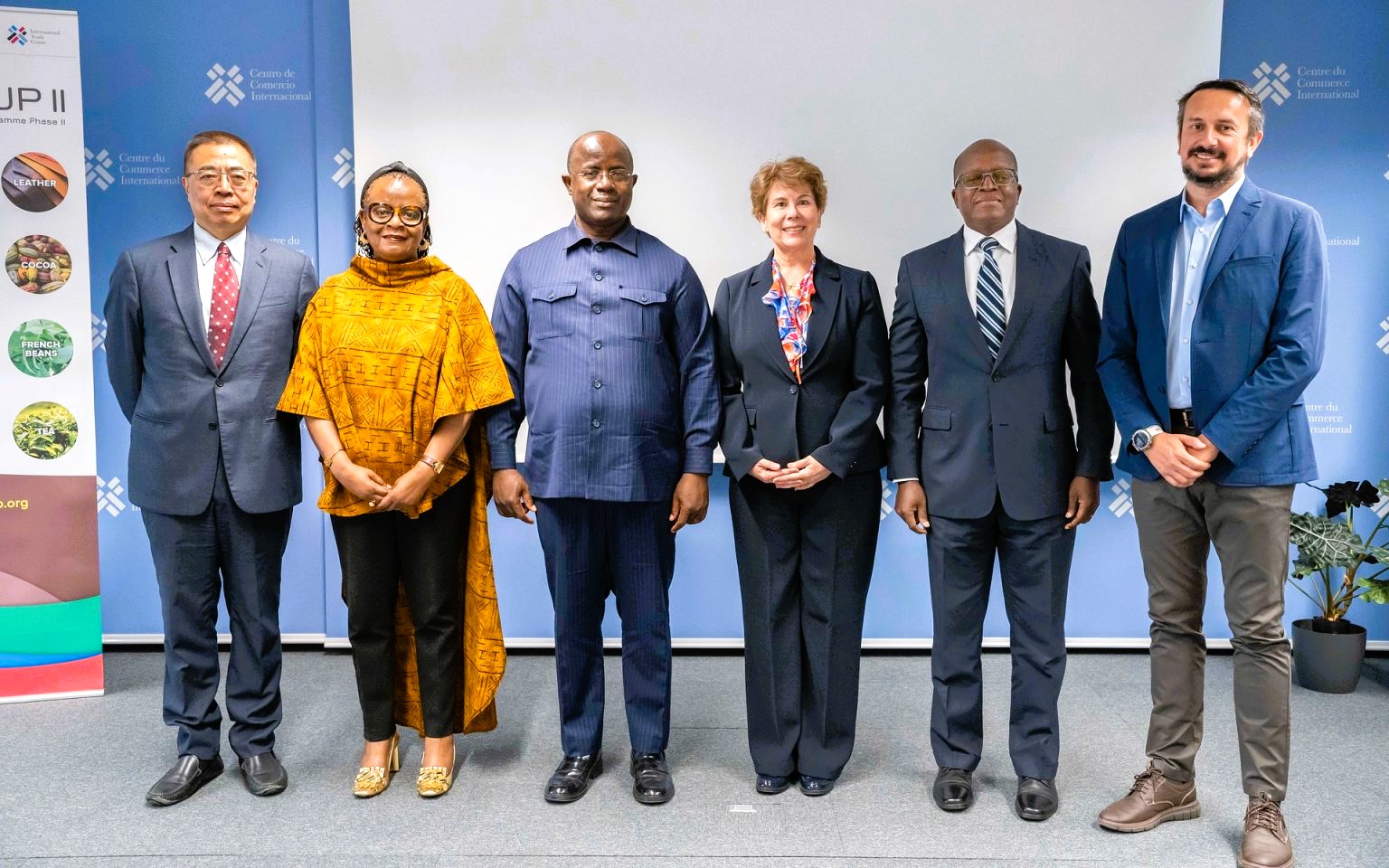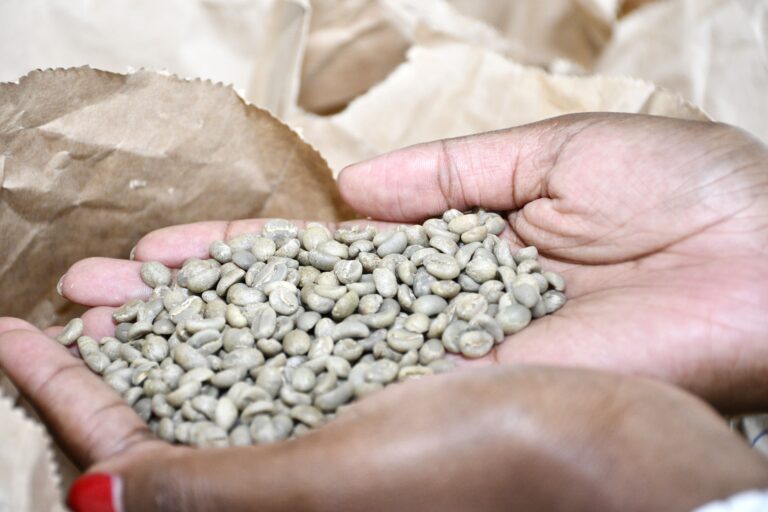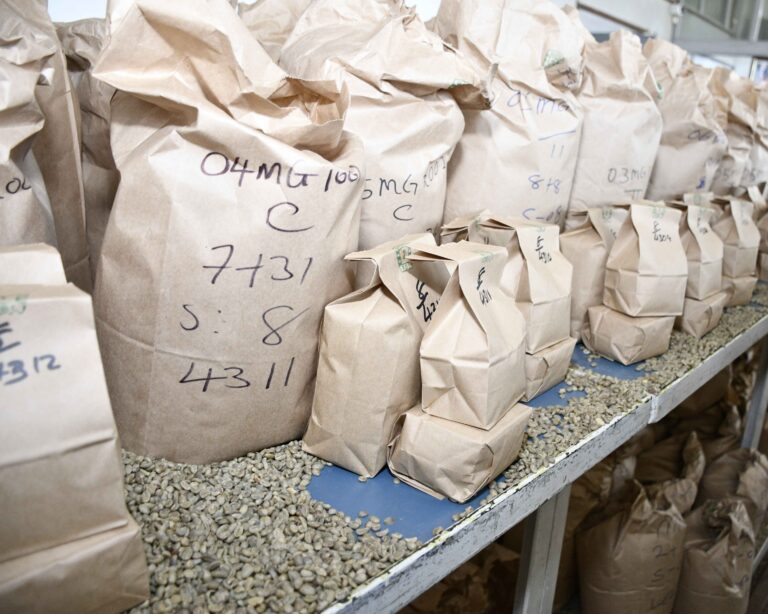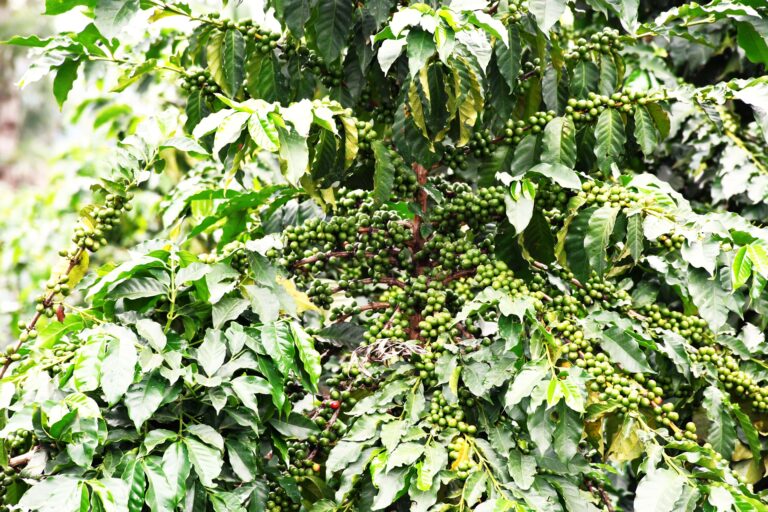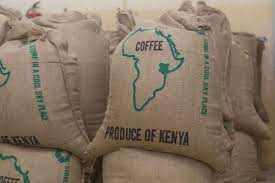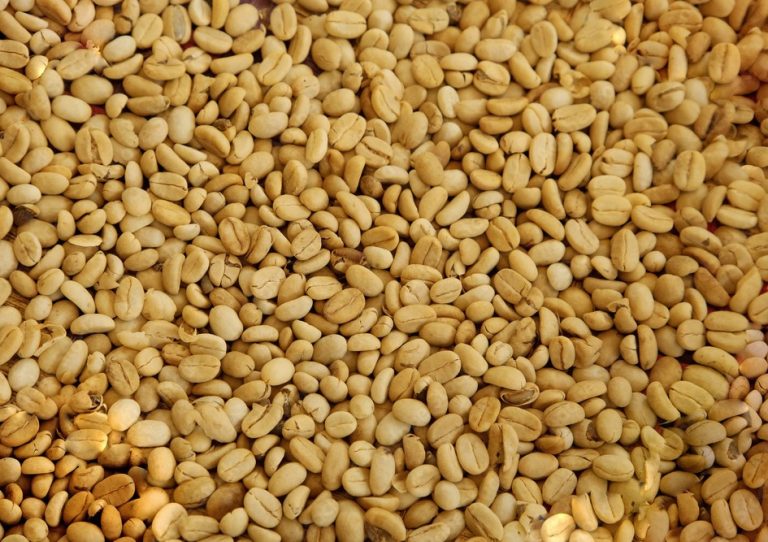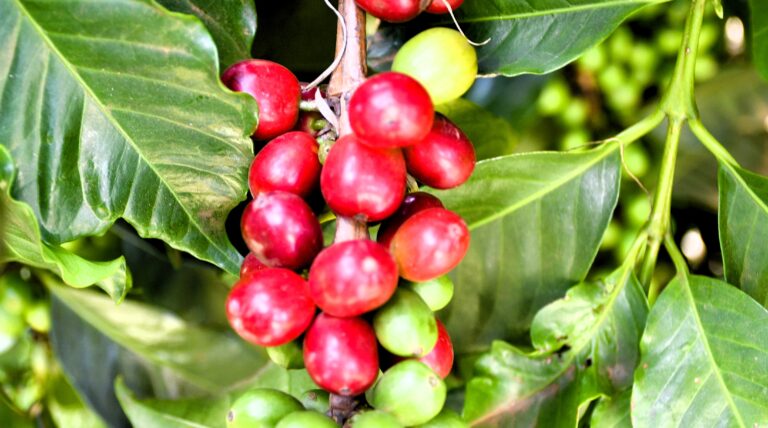By Kimuri Mwangi
East Africa’s coffee industry is experiencing a moment of historic transformation, led by Uganda’s rise as the continent’s top coffee exporter. In May 2025, Uganda overtook Ethiopia by exporting a record 47,606.7 tonnes of coffee, a 43.59% year-on-year increase that pushed its annual earnings beyond USD 2 billion. The milestone underscores the region’s increasing global competitiveness, driven by investments in quality, sustainability, and value addition.
Uganda’s achievement is part of a broader East African effort to elevate the coffee sector through strategic regional cooperation and international market engagement. The EU-EAC MARKUP II project, funded by the European Union, has brought together key agencies from across the region: Rwanda’s National Agricultural Export Development Board (NAEB), Burundi’s Office for the Development of Coffee (ODECA), Kenya’s Coffee Directorate (KCD), the Tanzania Coffee Board (TCB), and Uganda’s Ministry of Agriculture, Animal Industry and Fisheries.
Through the project, nearly 40 coffee companies, including five from Uganda, showcased their products at the World of Coffee 2025 expo in Geneva (26–28 June). The goal is to support small and medium-sized enterprises (SMEs) in accessing new markets and adding value to their products, while strengthening the region’s presence in the global coffee trade.
Speaking during a high-level side event hosted by the International Trade Centre (ITC) on 24th June, global and regional leaders emphasized the importance of SMEs and smallholder farmers, who produce nearly 80% of the world’s coffee, in building sustainable and inclusive coffee value chains.
“At the WTO, we see every barrier removed as a seed for growth,” said WTO Deputy Director-General Xiangchen Zhang. “By empowering smallholder farmers and MSMEs, the true backbone of the global coffee chain, we are not just easing trade; we are transforming local challenges into international triumphs, ensuring that every cup of coffee carries a legacy of hope, resilience, and prosperity.”
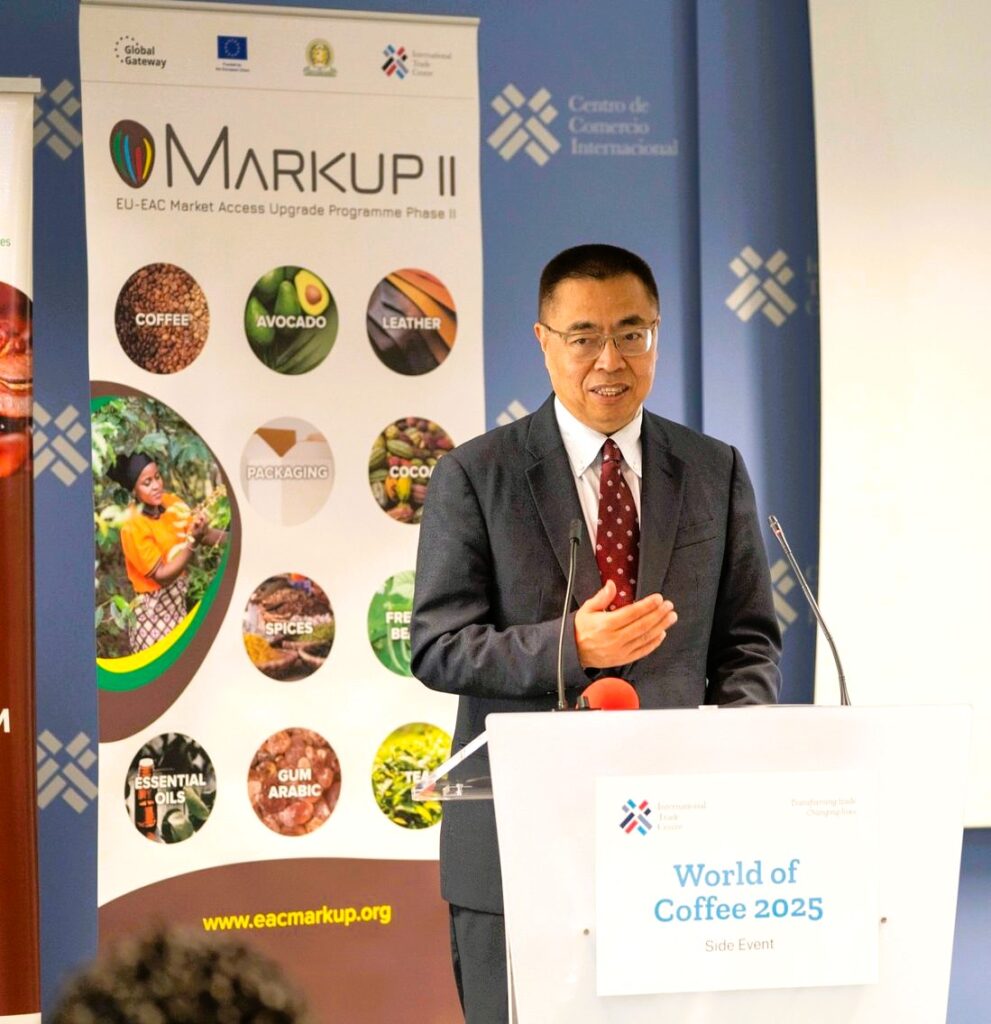
ITC Deputy Executive Director Dorothy Tembo added, “Our dialogue today is not merely about showcasing exceptional coffee, it is about understanding the day-to-day realities of the MSMEs who drive the sector. With robust initiatives and collaborative partnerships, we’re building a future where innovation meets tradition, empowering local producers to thrive in international markets.”
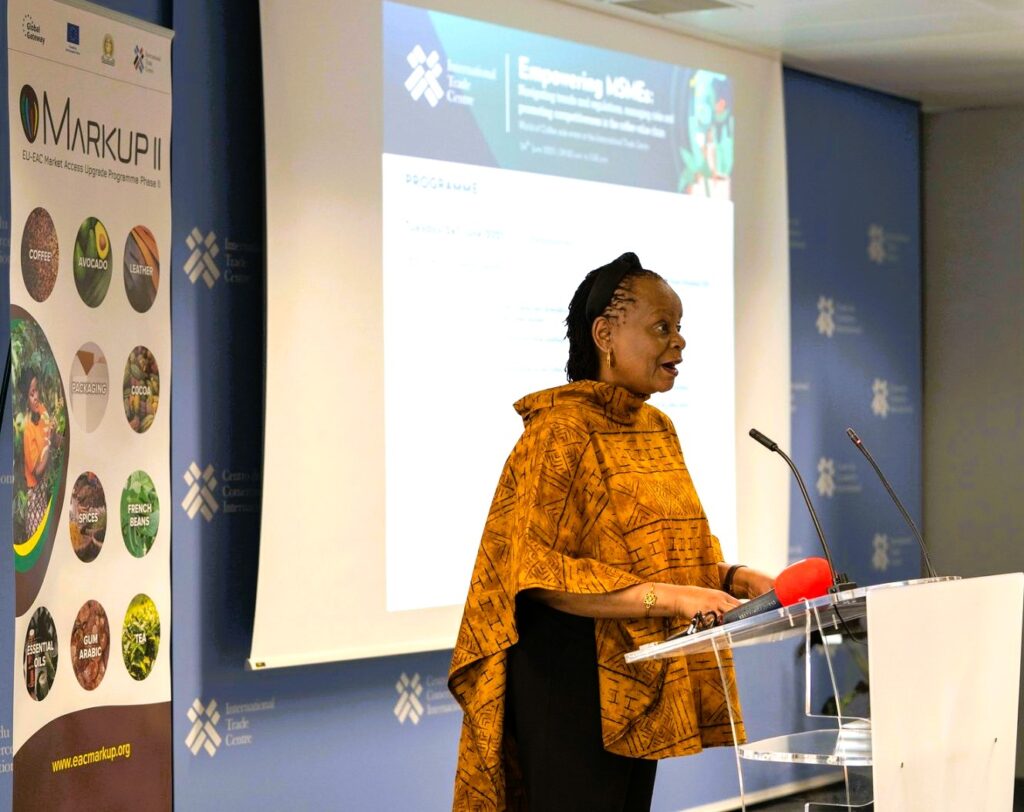
Uganda’s Minister of State for Agriculture, Animal Industry and Fisheries, Hon. Bwino Fred Kyakulaga, delivered the keynote address, reiterating the country’s and, by extension, the region’s ambition to scale value-added exports.
“Uganda reaffirms its ambitious commitment to transform its export trajectory, from US$50 billion to US$500 billion through strategic value addition,” he said. “Coffee will be one of the primary drivers for achieving this target, reinforcing not only our economic competitiveness but also our national transformation agenda. Additionally, the Government of Uganda has set aside US$100 million to support investment in the gradual transition of the coffee sector from green bean export to both green bean and soluble coffee exports in a bid to generate more revenue and income for the farmers and the country as a whole.”
In a separate meeting with ITC’s Deputy Executive Director, Hon. Bwino explored opportunities for regional collaboration in adopting advanced agricultural technologies and practices, including science and technology transfer to increase productivity sustainably, an initiative positively received by ITC leadership.
From a regional perspective, these developments reflect East Africa’s collective push to overcome traditional barriers such as regulatory complexity, high compliance costs, and environmental stress, all of which impact the coffee value chain.
Speaking to these challenges and opportunities, Vanusio Nogueira, Executive Director of the International Coffee Organization (ICO), said: “From seed to cup, we are redefining the future of coffee. Today, amid profound geopolitical shifts, emerging trade channels, and the pressing challenges of climate change, our industry stands at a crossroads. We must not only preserve the rich diversity of our coffee crops but also drive innovation in every stage, from sustainable farming and regenerative land use to groundbreaking post-harvest flavour innovations that cater to a new generation of conscious consumers. By uniting industry experts, governments, and local producers, and through robust partnerships and strategic investments, we are turning challenges into opportunities, ensuring that every cup of coffee is a testament to progress, resilience, and shared prosperity.”
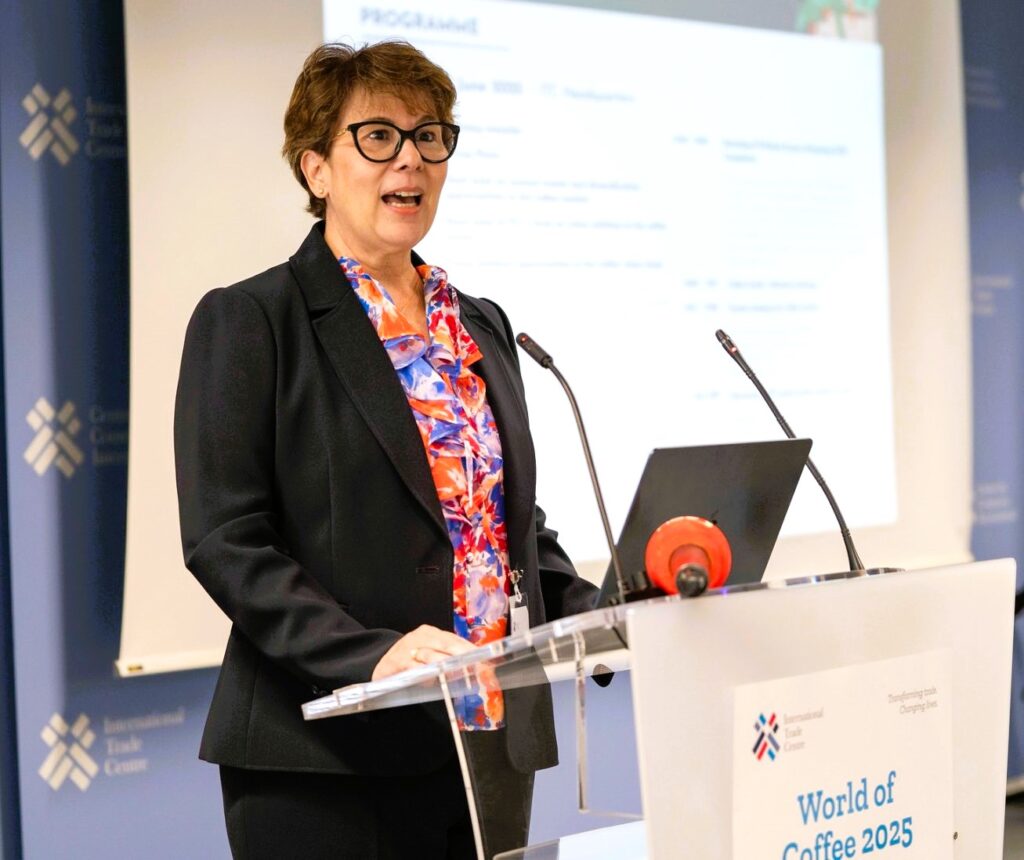
With initiatives like the EU-EAC MARKUP II project and increased cooperation among East African coffee institutions, the region is positioning itself not just as a volume exporter but as a leader in premium, differentiated, and value-added coffee.
As the World of Coffee 2025 trade fair concludes in Geneva, East Africa’s coffee stakeholders are showcasing how regional integration, innovation, and strategic investment can redefine the future of the sector, from farmer to global consumer, cementing the region’s place in the evolving landscape of international coffee trade.


